It’s sheep dipping time for the nomads of NW China
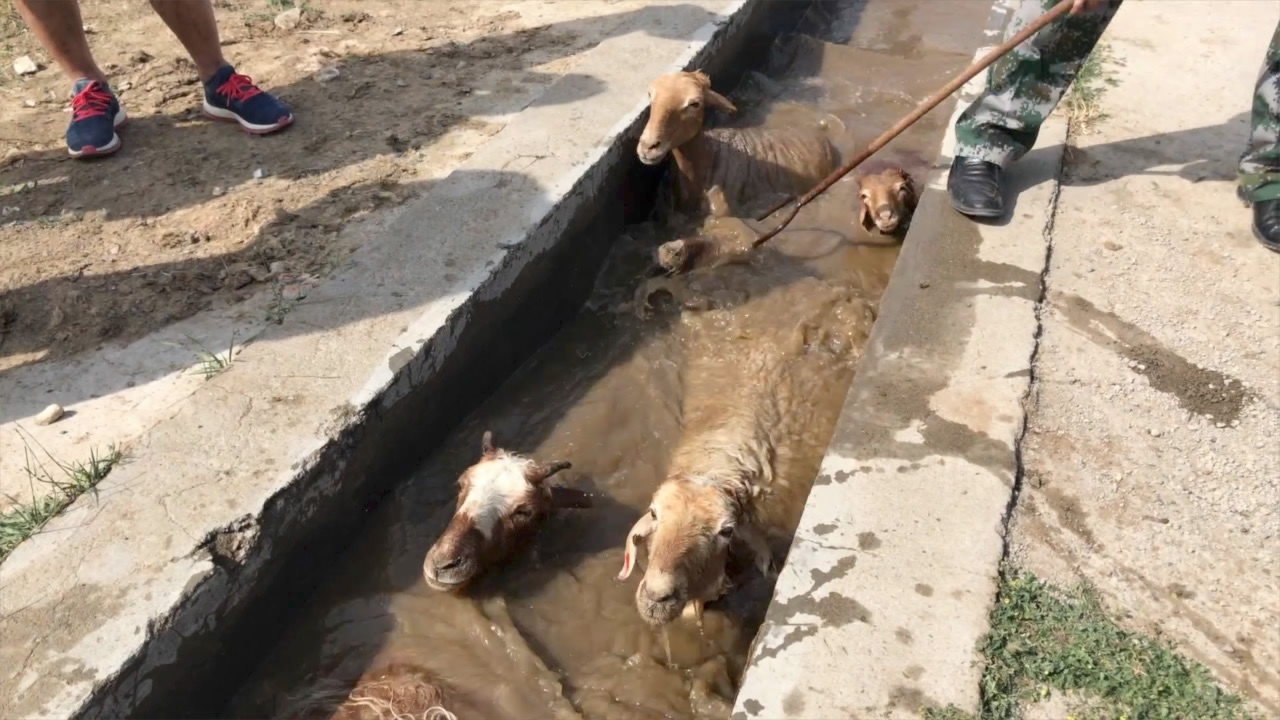
By CGTN's Sun Ke and Min-Zhui Lee
A chorus of bleats, splashes of water, and the shouts and laughter of Kazakh shepherds – It’s sheep dipping time in the sweeping grasslands of Jeminay County, northwestern Xinjiang Uygur Autonomous Region.
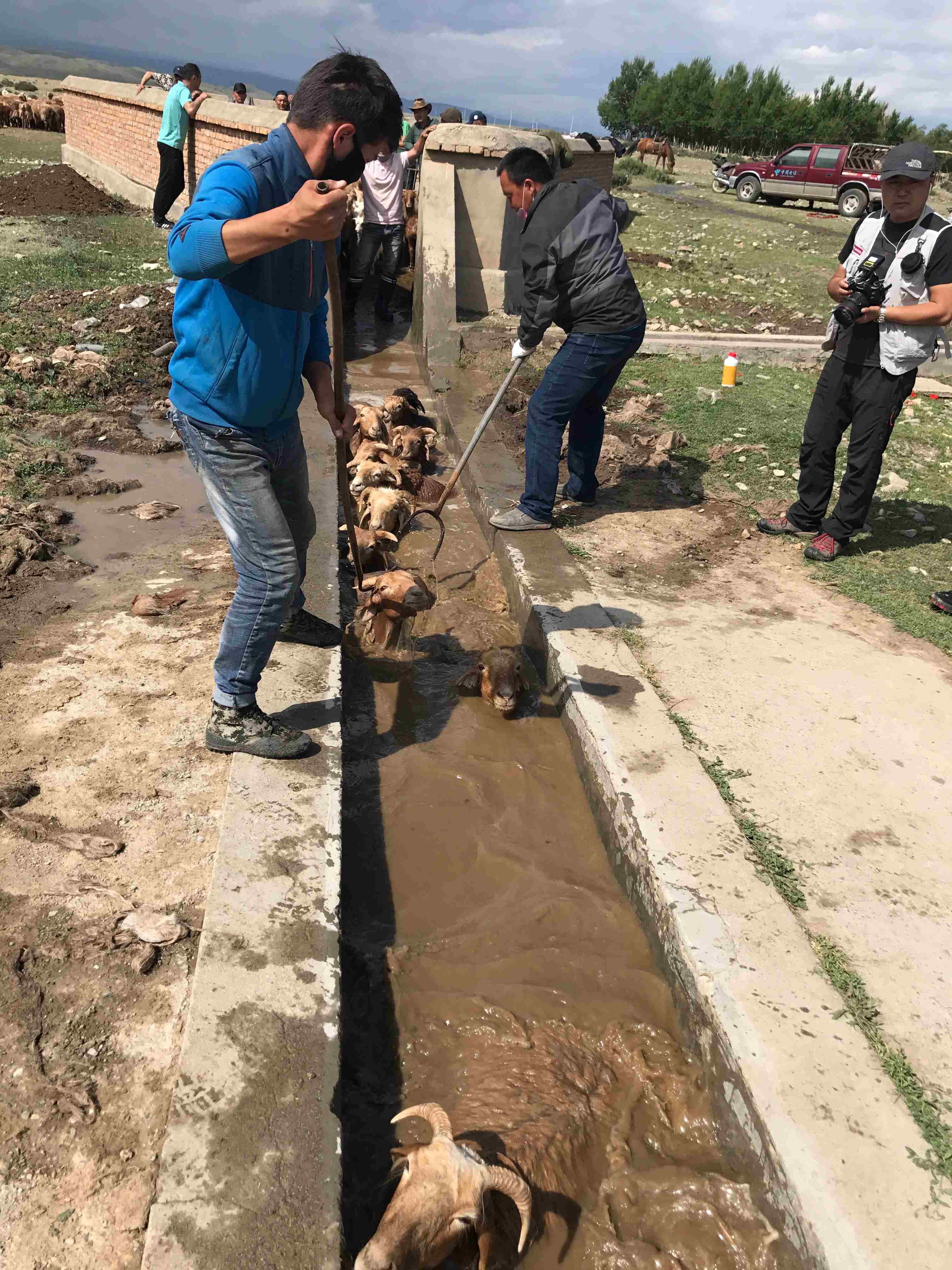
Workers busy with dipping sheep. /CGTN Photo
Twice a year, after the great nomad migrations between winter settlements and summer pastures high up in the mountains, Kazakh people herd tens of thousands of their sheep into plunge dips.
These are narrow channels filled with water, plus a liquid formulation of insecticide and fungicide, for the sheep to walk through. The treatment is used to protect the woolly creature from infestation of external parasites such as mites, ticks and lice.
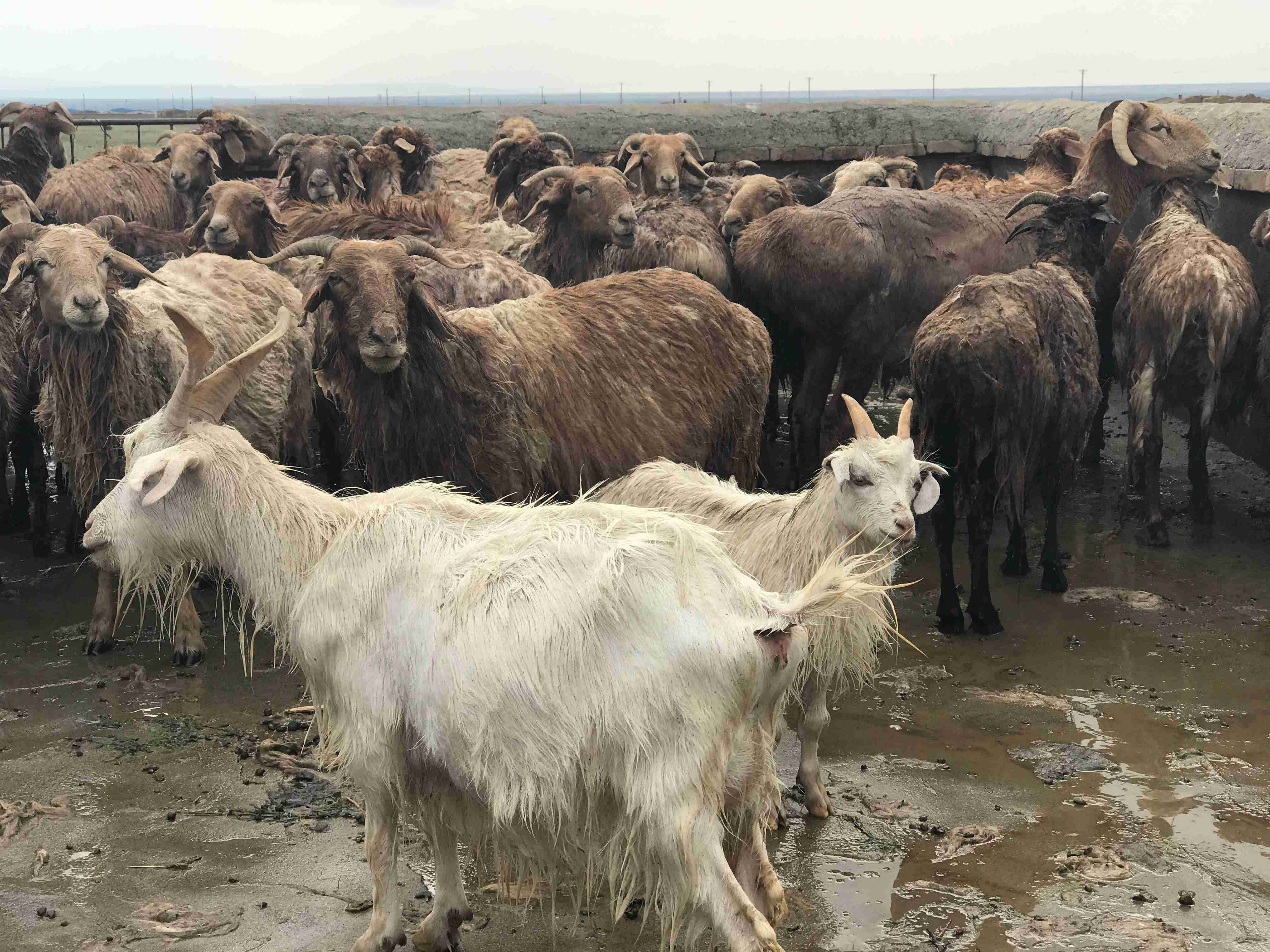
Sheep and goats getting wet. /CGTN Photo
A group of leathery men steer the unwilling sheep into a pen, and one by one, they’re coaxed into the small opening where brown water laps at the edge.
Many require more than just a nudge – sometimes they are lifted and dunked in with the heaving groans of a shepherd and the gurgling cries of protest from the livestock. But the rest of the group usually follow, albeit reluctantly.
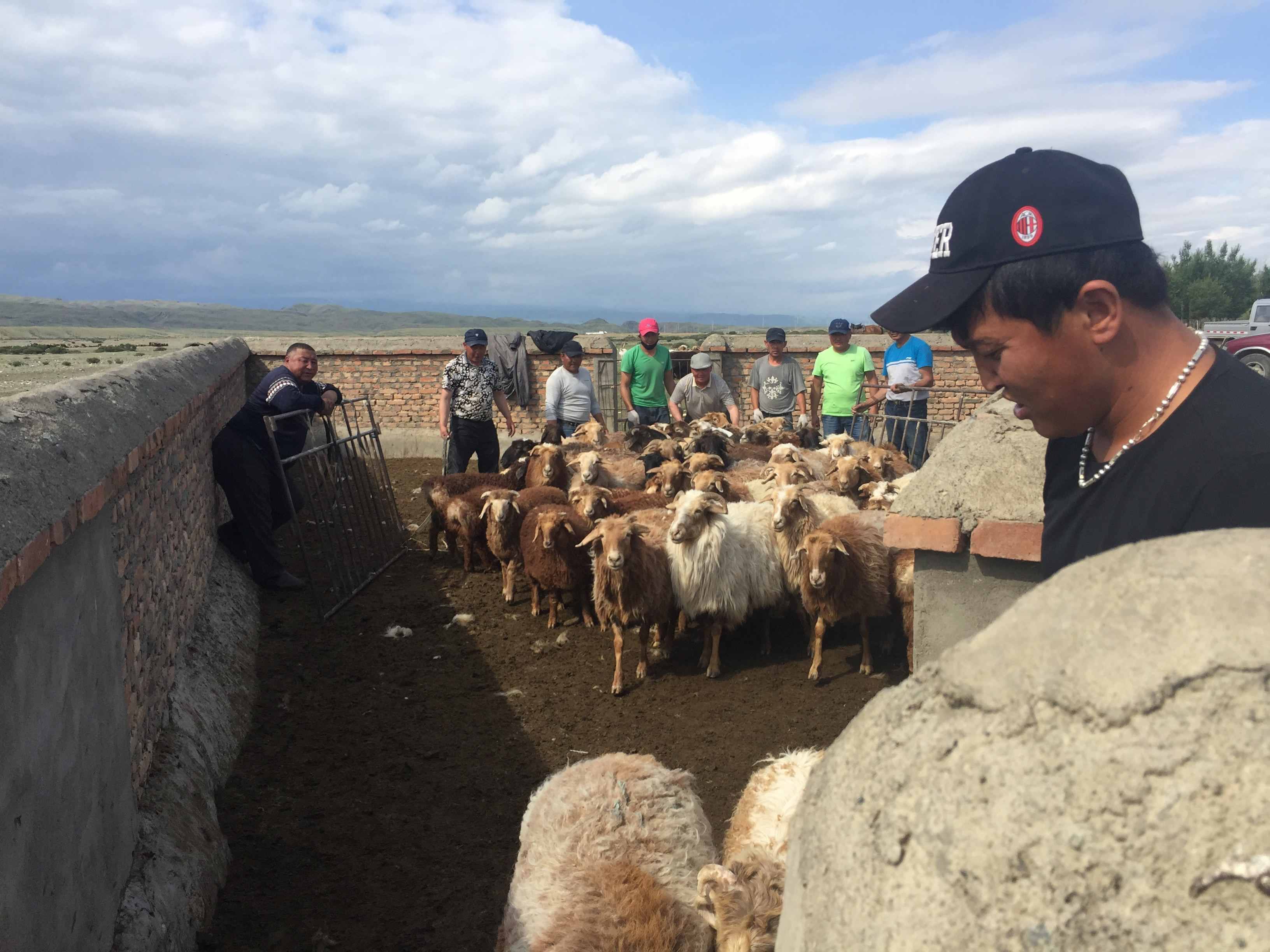
A group of leathery men steer the sheep crowd. /CGTN Photo
The sheep wade into progressively deeper water until almost completely submerged. Workers immerse the animals’ heads with a quick downward movement of a prong – and then it becomes shallower for them to exit into a pen and dry off.
It’s a slow process, and occasionally there are drowning casualties. But there is time for chitchat and camaraderie, and for Kazakhs, it’s just a typical part of their lives.
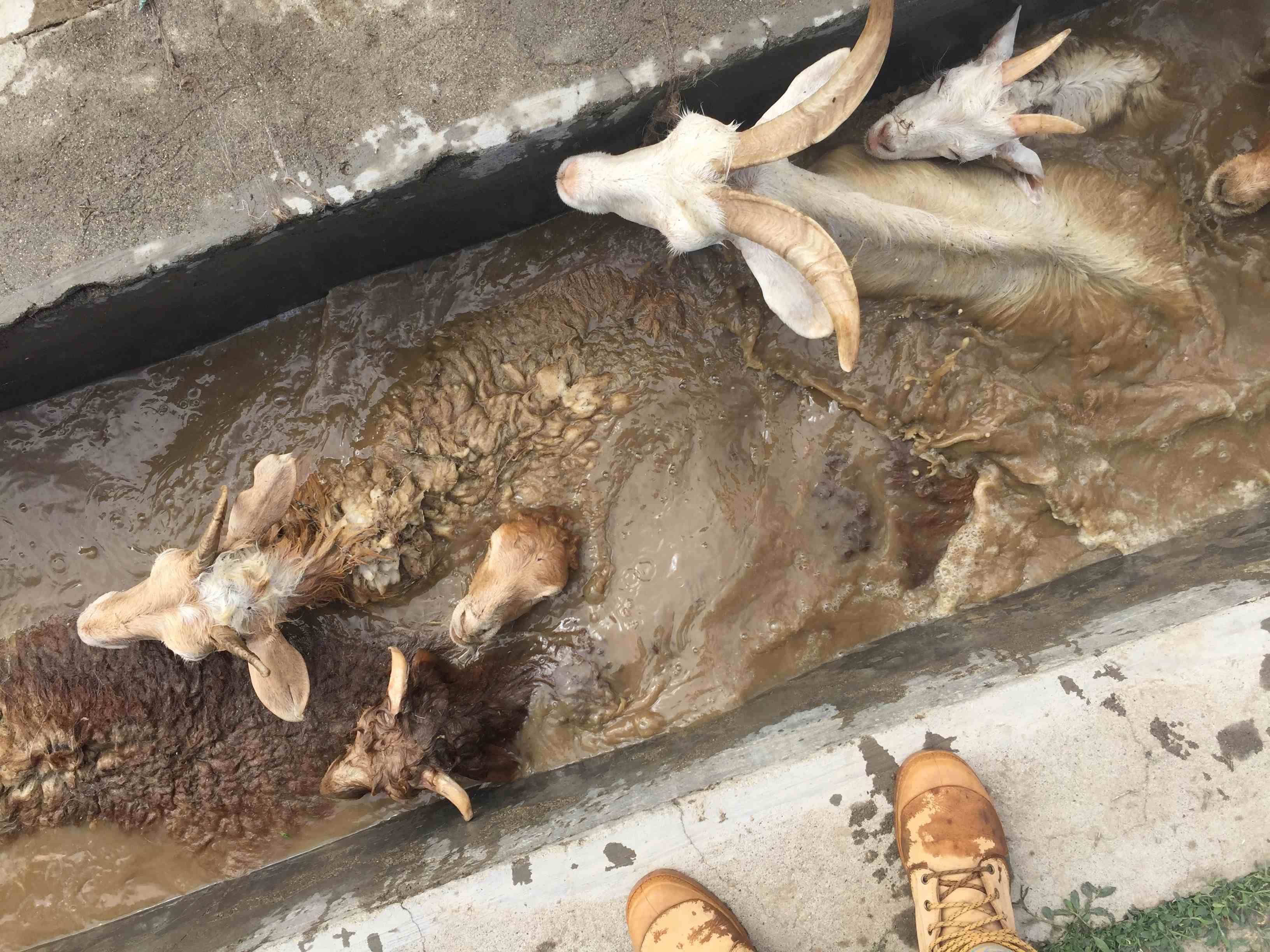
Sheep dipped in a trench. /CGTN Photo
The Kazakh people are one of the 55 ethnic minority groups in China, numbering around 1.5 million. In Jeminay County, which borders Kazakhstan, over 60 percent of the population are of the ethnic Kazakh group. Their diet consists mainly of dairy products and mutton – and thus these domesticated ruminants are valuable possessions.
